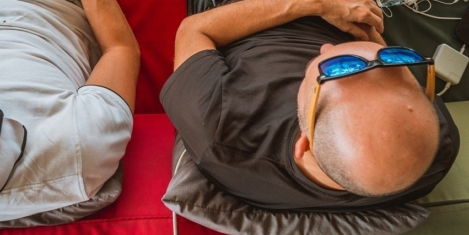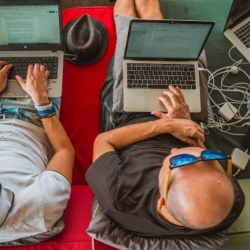July 2, 2020
Leaders need to develop a high care quotient for the new challenges they face
 Everything has taken a hit in 2020. Nothing has gone unscathed or unchanged – and the same goes for leadership. From boardrooms to living rooms, meeting rooms to spare rooms, leadership has moved away from face-to-face interactions to digital communications. Meanwhile, forward-thinking initiatives, spurred on by continuing diversity imbalances and widening gender pay gaps, have been put on hold. Following government guidance, only half of businesses published their 2018-19 gender pay gap report – which could reportedly push gender equality back a whole generation. We are risking losing sight of what’s important to us – and unless we’re intentional about how we make systemic, much-needed organisational changes, they’re not going to happen if we only focus on more ‘critical’ things, or keeping the lights on. More →
Everything has taken a hit in 2020. Nothing has gone unscathed or unchanged – and the same goes for leadership. From boardrooms to living rooms, meeting rooms to spare rooms, leadership has moved away from face-to-face interactions to digital communications. Meanwhile, forward-thinking initiatives, spurred on by continuing diversity imbalances and widening gender pay gaps, have been put on hold. Following government guidance, only half of businesses published their 2018-19 gender pay gap report – which could reportedly push gender equality back a whole generation. We are risking losing sight of what’s important to us – and unless we’re intentional about how we make systemic, much-needed organisational changes, they’re not going to happen if we only focus on more ‘critical’ things, or keeping the lights on. More →








 Flexible working arrangements are those which ‘allow employees to vary the amount, timing or location of their work’ and may include part-time working, mobile/home working, compressed hours or job-sharing – among others. Before the lockdown, according to the Chartered Institute of Personnel Development (CIPD), more than half of all employees in the UK used at least one form of flexible working, while a study by Gallup in the US suggests as many as 43 percent of employees already worked flexibly. The practice has been found to have positive effects on job satisfaction, employee commitment, reducing work-family conflict – and for many is now an essential component of modern working life.
Flexible working arrangements are those which ‘allow employees to vary the amount, timing or location of their work’ and may include part-time working, mobile/home working, compressed hours or job-sharing – among others. Before the lockdown, according to the Chartered Institute of Personnel Development (CIPD), more than half of all employees in the UK used at least one form of flexible working, while a study by Gallup in the US suggests as many as 43 percent of employees already worked flexibly. The practice has been found to have positive effects on job satisfaction, employee commitment, reducing work-family conflict – and for many is now an essential component of modern working life. 






 According to research conducted by conference call provider
According to research conducted by conference call provider 






 New research suggests that almost half (44 percent) of working carers in England and Wales, equivalent to around 1.6 million people, are struggling to cope with the pressures of balancing their work and caring responsibilities – and that a quarter (24 percent) have considered giving up their job entirely. These are the findings in a newly published report, titled “Supporting working carers: How employers and employees can benefit”, from the
New research suggests that almost half (44 percent) of working carers in England and Wales, equivalent to around 1.6 million people, are struggling to cope with the pressures of balancing their work and caring responsibilities – and that a quarter (24 percent) have considered giving up their job entirely. These are the findings in a newly published report, titled “Supporting working carers: How employers and employees can benefit”, from the 









July 3, 2020
Watch where you sit: new workplace setups could hit productivity
by Geoffroy de Lestrange • Comment, Wellbeing